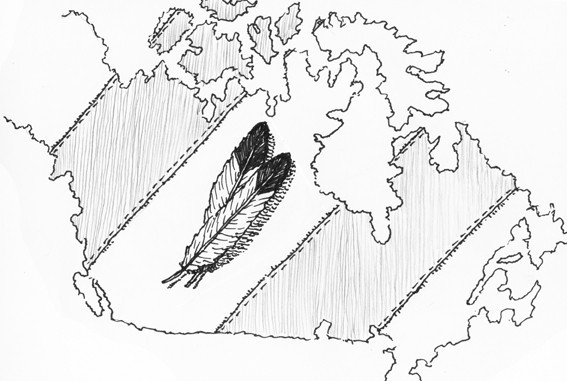Make it official
Aboriginal languages deserve official recognition too
During the years I have been teaching, it has often been mentioned that aboriginal children have poor language skills.
I would make the point that in some areas, such as language proficiency, aboriginal children have greater skills than many other Canadian children.
This is a country where the two official languages were developed in Europe and not in North America. As a teacher, and having lived in both Quebec and English Canada, one of the questions I ask my students is how many of them speak both official languages? The majority that I have come across can speak only one of the official languages.
In many of the aboriginal communities I have visited, the children are bilingual. They speak their own aboriginal language along with one of the official languages, and in Quebec, sometimes both.
“ The reason that aboriginal children’s greater language proficiency is disregarded is because their indigenous languages lack recognition as official languages of Canada.
They speak their own language as well as English and French children speak their first language and speak a second and sometimes a third language better than non-aboriginal children speak a second official language.
The reason that aboriginal children’s greater language proficiency is disregarded is because their indigenous languages lack recognition as official languages of Canada.
This in spite of the fact that Canadians self-identify by using a word from an aboriginal language – Canada – which is a Mohawk/Iroquoian word meaning “the village.” The first to be identified as Canadian were the Iroquoian peoples around the St. Lawrence Valley in 1534 and 1535. It was only after the French had settled there permanently in the 1640s that they began to be identified as “les Canadiens.”
Other aboriginal words abound in French and English Canada. For example, Quebec is a Mik’maq word meaning “where the river narrows.” Toronto is an Iroquoian word meaning “place of the fish weirs.” Ottawa is named after an aboriginal society known as the Odawa or “traders.” Winnipeg is an Ojibwa word meaning “muddy waters” and Manitoba a Cree word meaning “where the spirit rests.” Assiniboine is an Ojibwa word for “the boiling rocks.” Saskatchewan means “swift flowing river” in Cree. These are just some of the many place names derived from aboriginal languages which we use every day.
Making their languages official languages of Canada would put aboriginal children not only on par with other children in Canada in terms of language proficiency, but in some cases further ahead, since most Canadian children can speak only one of the official languages. Instead, we bemoan the idea that bilingual aboriginal children are being left behind and disregard the fact that most French or English children are uni-lingual.
What does that tell you about how we view the people and the languages that gave our country many of its names?
Brian Rice is an associate professor of education at the University of Winnipeg.
Published in Volume 64, Number 10 of The Uniter (November 5, 2009)







